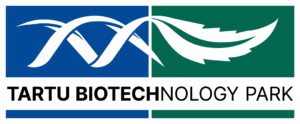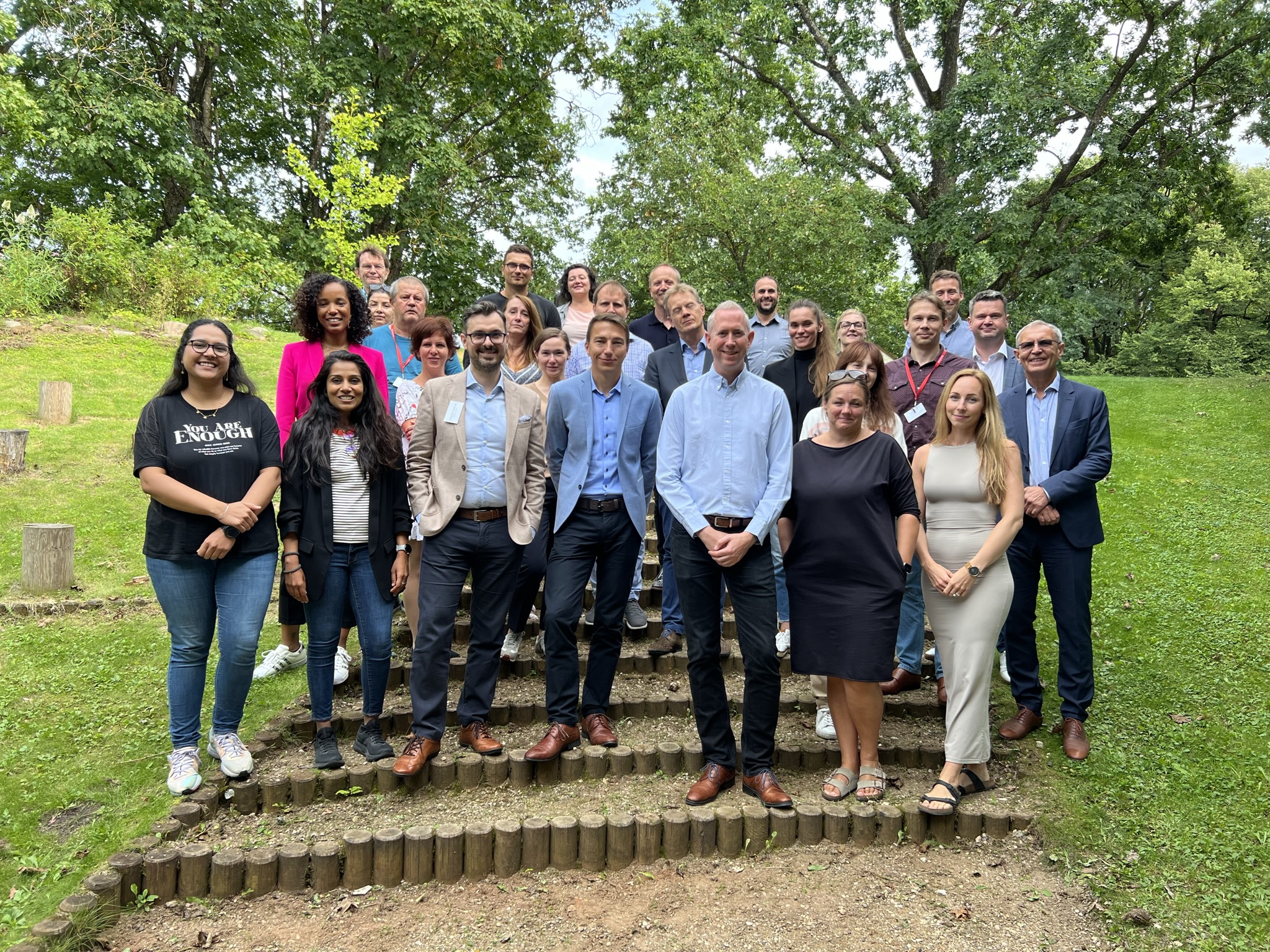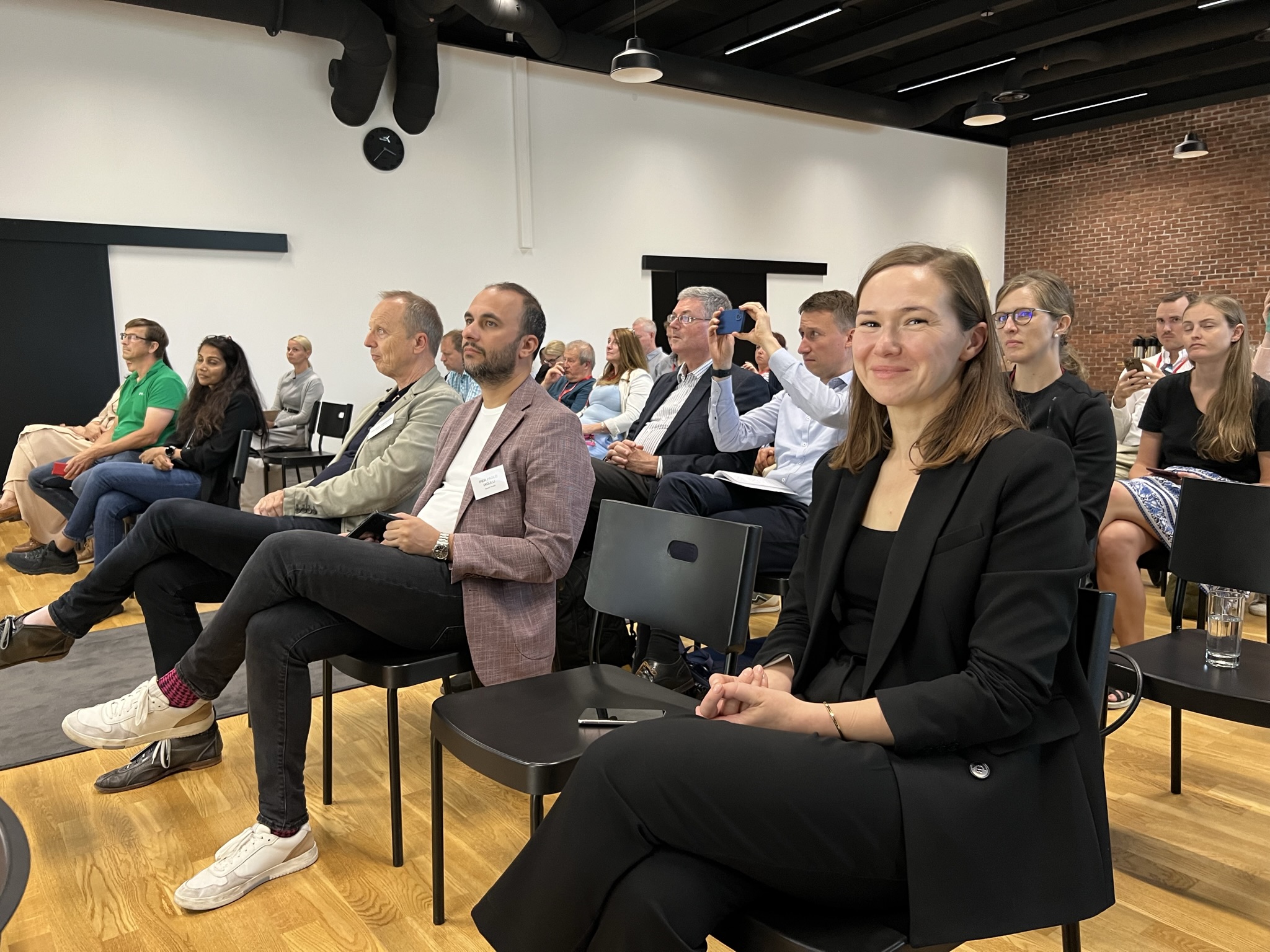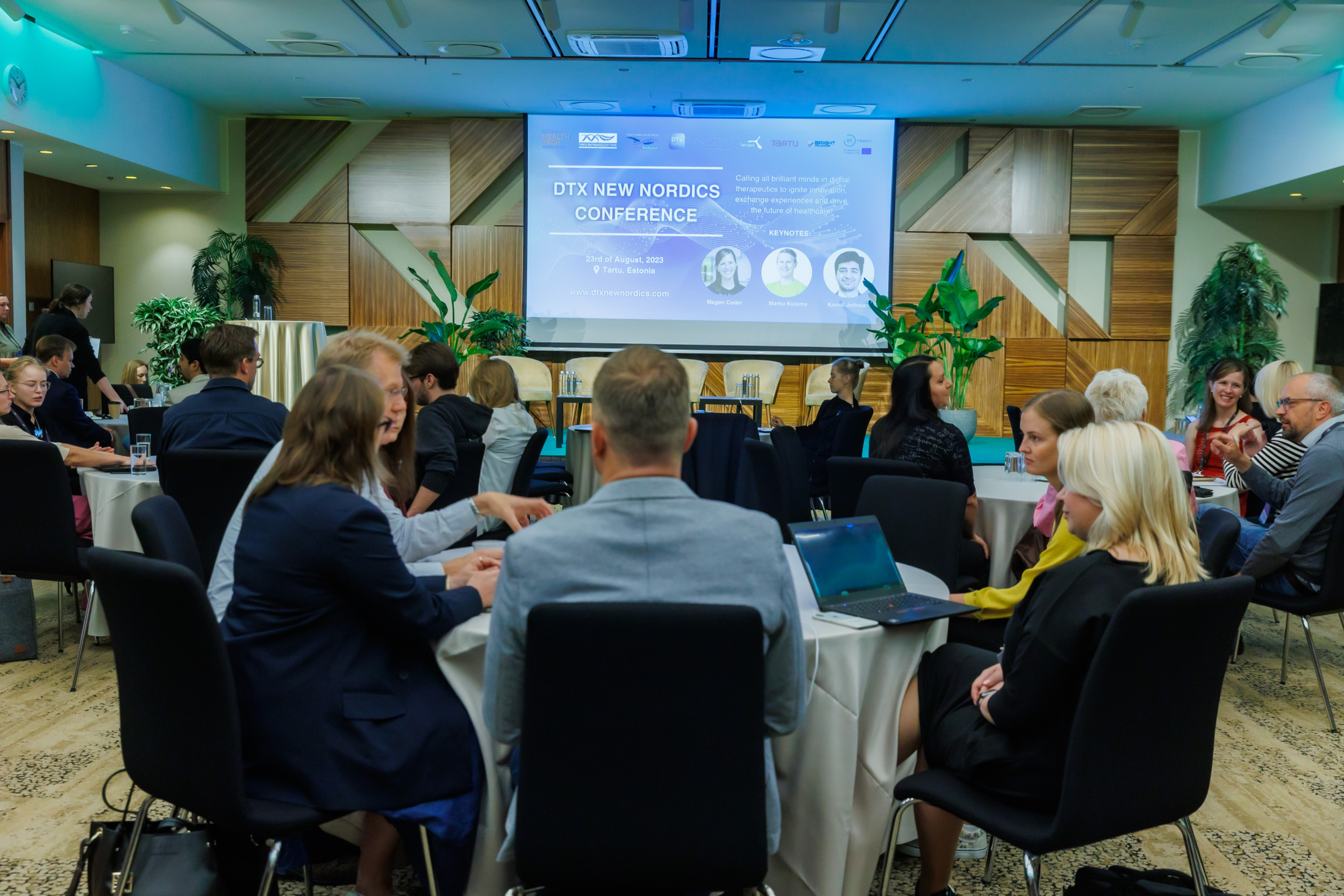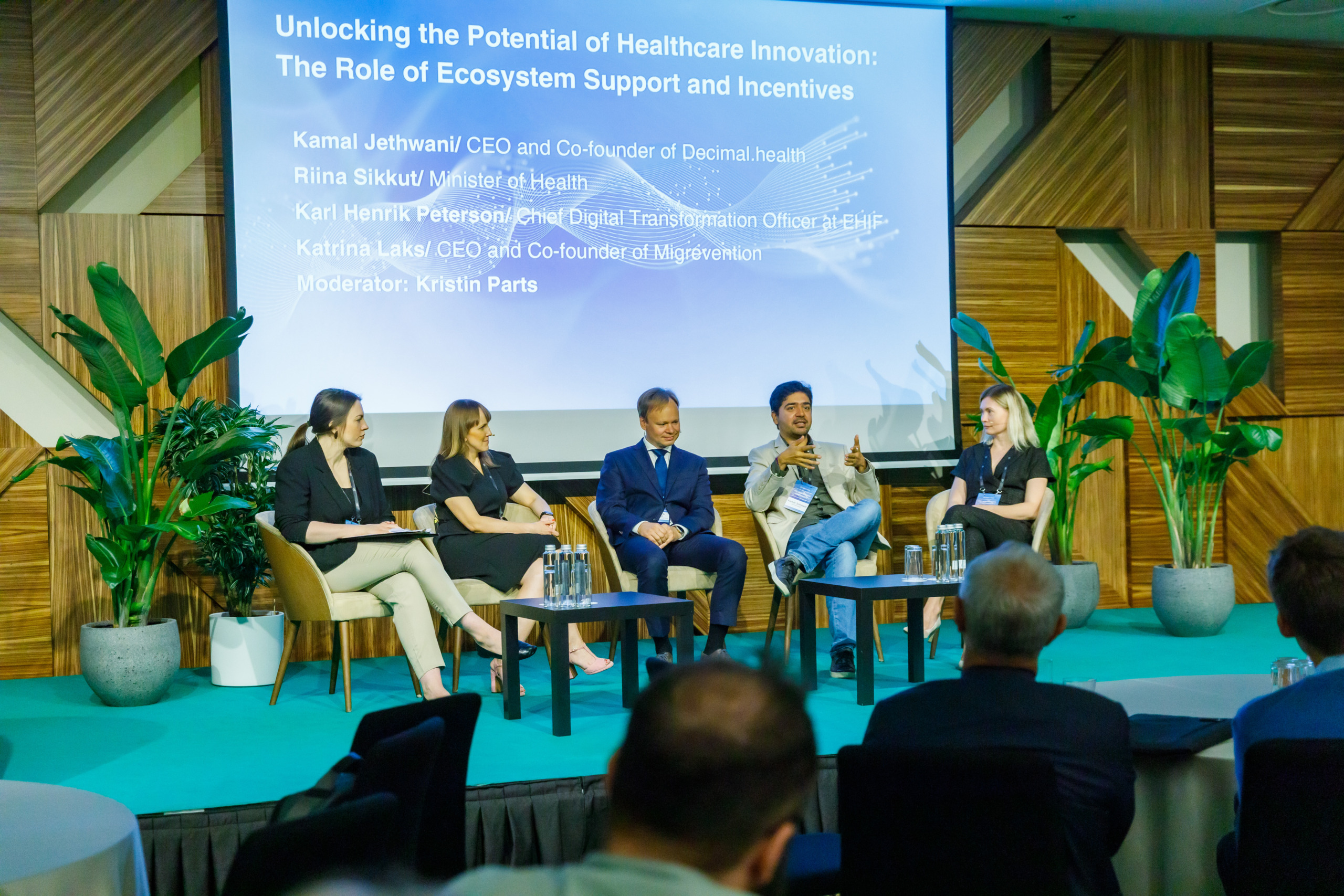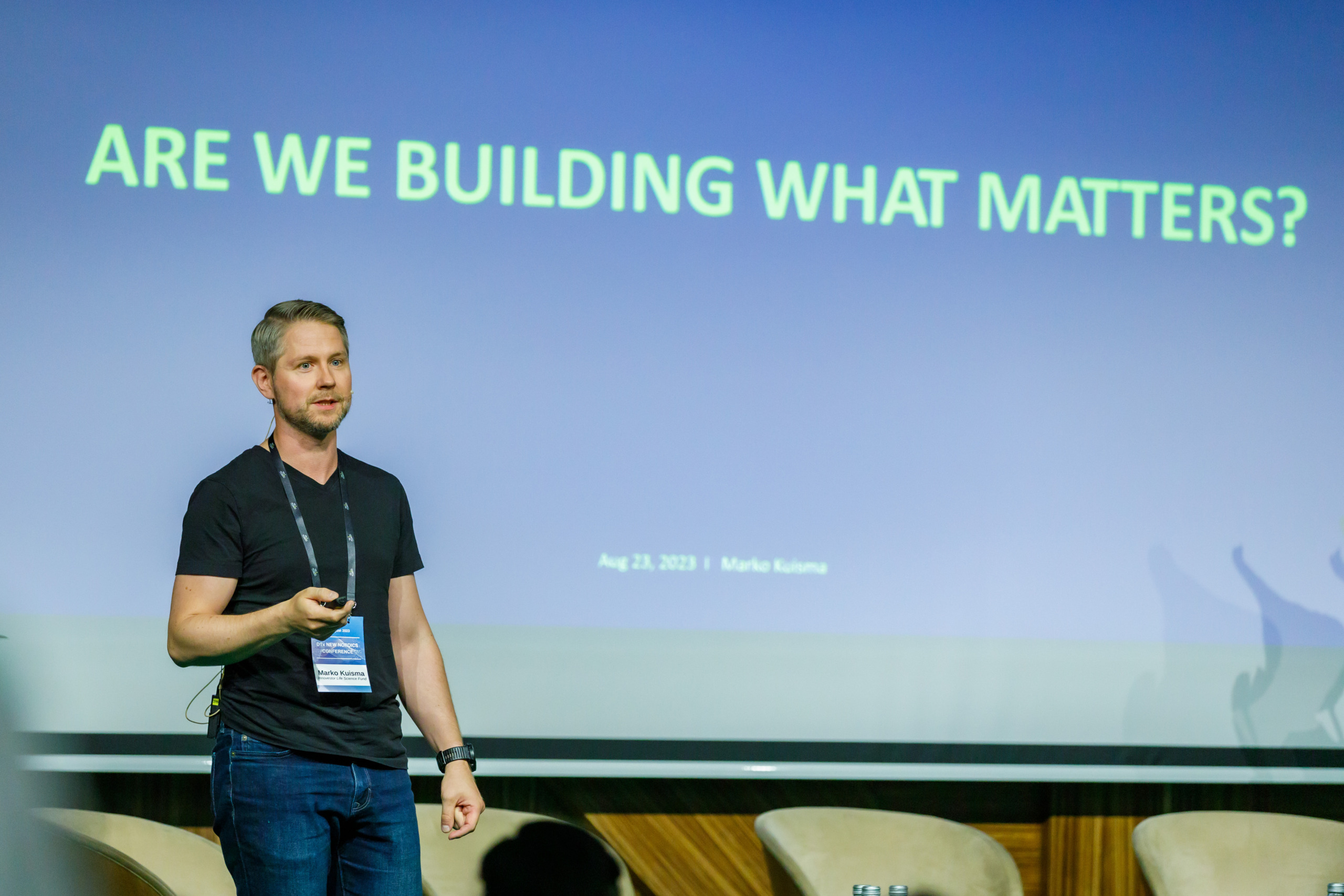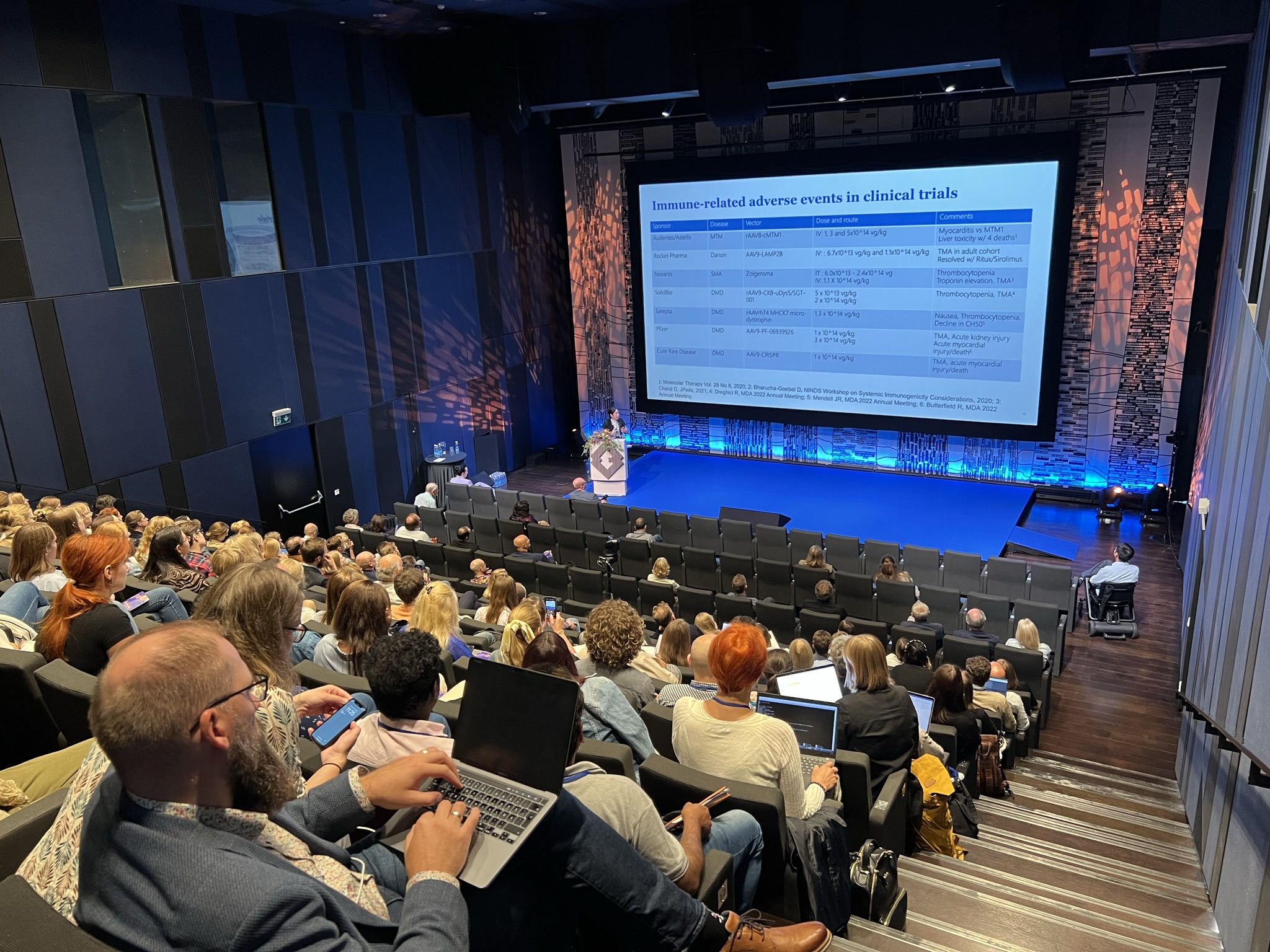Estonian Health Tech Week 2023
On 21st-25th of August, we celebrated the Estonian Health Tech Week – the first ever week-long event in Estonia focusing on the current state and future perspectives of innovation, technology and digital transformation in healthcare.
We were truly happy to welcome a diverse group of individuals from throughout Europe, ranging from startups and hospital representatives to policymakers and investors to meet the Estonian e-Health, health tech, biotech, and healthcare ecosystem. These people will have the firsthand possibility to share Estonian current experiences and to start collaboration for a better future in health and care.
STARTING THE WEEK WITH HOSPITAL VISITS
The Estonian healthcare system was introduced by several stakeholders. To start, we visited traditional but innovative healthcare providers. We toured around the North Estonia Medical Center to understand some of their processes, and challenges and discussed how to react earlier, focus more on preventative care, give patients knowledge and engage them. Terje Peetso, Chief Medical Innovation Officer stated that despite the fact there is a target to raise the budget for innovation, not all innovation in the hospital needs to be digital. Siiri Heinaru, an Innovation Specialist, is devoted to tackling different challenges together with specific teams in the hospital said that it is hard to find a doctor who would have enough time to be invested in a project through each phase, but critical for the success of the project and further implementation of the solutions.
A similar session was also held in Tartu, where we visited Tartu University Hospital the Center of Innovation in South Estonia, where Joel Starkopf, Member of the Executive Board and Head of Research and Development, gave a brief overview on the research and development activities and projects, highlighting the focus on increasing outpatients and trying to pursue daycare instead of hospitalisation. The hospital is strongly relying on the University’s resources on innovative leads and knowledge, offering strong support in practice, therefore the cooperation between the two is crucial, as confirmed by Vallo Volke, Head of Innovation at Tartu University Hospital.
E-HEALTH AND ECOSYSTEM
We then took a focus on e-health at e-Estonia Briefing Centre and analysed the current state of Estonian e-healthcare, connections in the system, and how data is shared and used for collaborative innovation.
To bind our success on e-health together with healthcare we met key ecosystem players in Tallinn and Tartu. Tehnopol Science and Business Park led a seminar to bring understanding of data flow in healthcare information systems (presented by Tõnis Jaagus from (TEHIK) Tervise ja Heaolu Infosüsteemide Keskus / Estonian Health and Welfare Information Systems Centre) and reimbursement (Kristin Kuusk from Tervisekassa (Estonian Health Insurance Fund). EHIF plays a vital role in covering a wide range of costs for health services and financing the purchase of medicinal products and medicinal technical aids. They also support the implementation of impact studies of the developed services to drive innovation further.
During the seminar, we also discussed the development of patient pathways (example presented by Nele Labi, the Vice Chancellor at the Ministry of Social Affairs and Andres Müürsepp, Baltics Lead for Market Access and Country Manager Estonia at Merck Sharp & Dohme, led by Paulin Jürjens from Estonian Connected Health Cluster) and a perspective from the European SaMD (Software as a Medical Device) landscape and the reimbursement schemes for DTx companies (Przemek Grzywa from Revolve Healthcare).
In Tartu, we met the companies that take research and development even further from the labs and into production. At a seminar hosted by Tartu Biotechnology Park and ScanBalt as local and Baltic Sea Regional hubs, we learned about the activities and challenges of biotech companies Solis Biodyne, Icosagen, Antegenes, Tervisetehnoloogiate Arenduskeskus (ccht) and the digital therapeutics point of view of Migrevention.
To tie the knot between life sciences and health technologies we learned how the Estonian Biobank creates value from the data of the common population, we were explained the journey from how the data is collected to studying links between the genes and diseases. Our visit took us all the way to the basement where we toured together with Steven Smit, the Head of the Biobank Lab.
DTx NEW NORDICS
From that data point of view, we continued with a more digital focus, as we invited the brightest minds in digital therapeutics to innovate at DTx New Nordics conference. According to industry experts, we will fail in healthcare without the vast digital transformation. Our aim was to make an impact by paving the way for what needs to happen and doing this by bringing together policymakers, ecosystem representatives, industry experts, healthcare professionals, and health tech startups from Estonia and abroad to discuss and tackle the challenges together.
The day started with a session focusing on the potential of healthcare innovations with the support of the ecosystem, led with a keynote by Kamal Jethwani (Decimal.health) and followed by a rather honest panel discussion together with Riina Sikkut, the Estonian Minister of Health, Karl Henrik Peterson, the Chief Digital Transformation Officer at the Estonian Health Insurance Fund and Katrina Laks, the CEO and co-founder of Migrevention and the founding partner of DTx Estonia. It was stated by Kamal and discussed in the panel that a DTx is not and should not be just a technology or an app, but needs to solve problems for both the healthcare workers, who are in burnout, and patients, as a solution to support the healthcare system strategically as a whole. Estonia was recognised as a great testbed for digital innovation, all seems to be set in place, even the reimbursement models built by the Health Insurance Fund, but the question of exporting the solutions outstays. Being fast and clinically validated here should give us a head start on reaching other markets. How to validate that? Clinical validation and copying local clinical validation to bigger markets for regulatory and reimbursement properties could be one option.
Next up, we had Marko Kuisma (Innovestor Life Science Fund) opening up on building what matters for the system – not letting a startup get trapped only with navigating complex systems, including reimbursement and regulatory hurdles, but also thinking more of the patient and who we are building the product for. The statement was supported by Jaarika Järviste (Estonian Health Insurance Fund), Kristiina Sepp (Estonian Business and Innovation Agency) and Viktorija Trimbel (CoInvest Capital) in a discussion where they suggested validating and staying true to the startup’s core mission. Furthermore, the panel acknowledged that the healthcare system should shift its focus more towards prevention rather than treatment and highlighted that the key to building profitable prevention solutions lies in framing them well, understanding the target audience and proving their effectiveness without forgetting the clinical unmet need in the very beginning.
As a keynote for the final session of the conference, Megan Coder (Digital Medicine Society (DiMe)) explained there’s a recognition that while innovation brings immense promise, there are also practical issues and lessons to learn while targeting an ecosystem as a market it is important to understand the hold-ups in the system. The panel discussion stated there clearly is a perceived gap between the innovation sphere, where startups and innovators work tirelessly to develop digital solutions and the healthcare institutions are often seen as walled-off entities. Nevertheless, both Terje Peetso, (North Estonia Medical Centre) and Tonje Holm Hjertaas (Akershus University Hospital) were positive about how the clinicians have evolved from initially not seeing the potential of digital tools to actively seeking how these tools can benefit their daily work and emphasised the need to involve patients into the development and implementation process.
During the day several gaps in the DTx pathway were validated and concrete steps were set for the Estonian market. These steps, with goodwill and some luck, could be applied to the whole New Nordics. We found ourselves on the same page that whether it is building solutions for the healthcare system, redefining roles of the person in each part of the process or finding new opportunities for more fluent and efficient workflow, we need to be creating/developing together with healthcare workers and patients and focus on the pathways on making a change in the system.
GENE FORUM
The last days of the week were complemented by international high-level scientific knowledge on genetics and genomics at Gene Forum to connect the dots of basic science to practice in digital health and everyday healthcare management. Gene Forum conference has been organized for over 20 years now and its main focus is on precision medicine through genetics. There are multiple topics within this frame, for example, this year the event discussed the role of genetics (and potential new treatment avenues) in pharmacology, personalised medicine, microbiome studies, mental health and novel technologies opening new treatment and diagnostic avenues.
SUPPORTERS AND NEXT STEPS
Estonian Health Tech Week was called to life by Tartu Biotechnology Park, Estonian Connected Health Cluster (led by Tehnopol), DTx Estonia, ScanBalt BioRegion and supported by EIT Health, The City of Tartu, BRIGHT project, European Regional Development Fund, COSME programme by the European Union. We would like to express our gratitude to our partners, speakers, and the participants and we are hoping that the experiences, insights and connections from this week will take us further innovating and making a concrete change together in healthcare industry with new cooperations.
